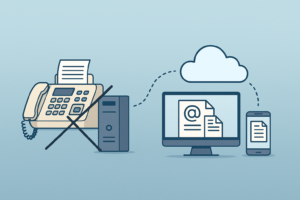As healthcare organizations work toward the mandatory transition from physical to electronic health records, the need for data security has never been greater. Fines for breaching regulations on storage of patient information are growing larger, making secure data archiving more important than ever, as a string of recent healthcare data breaches highlights.
Medtronic, a leading medical device company, disclosed this month that hackers had compromised the computer systems where patient data was stored in 2013. The company believes that the same cybercriminals who breached their system also attacked two other medical device manufacturers.
"The security posture of most device manufacturers is in critical condition," Tom Kellerman, chief security officer of security firm Trend Micro, told Reuters. He added that companies encrypt files but, "fail to properly monitor and secure internal networks to identify and stop hackers who get past traditional firewalls and antivirus software."
In a separate incident, Medtronic also admitted to losing data regarding to patients using a diabetes device made by the company. Almost 2,700 patients were informed that their information was inside a box of files that went missing.
It was also announced this month that the Office of Civil Rights settled its most recent Health Insurance Portability and Accountability Act violation suit. The compliance settlement, which involved Parkview Health Systems, was resolved with the provider paying a fine of $800,000 for potential violations.
Parkview employees were accused of violations stemming from improper disposal of information. One of the system's doctors was retiring, and more than 8,000 patient records had to be transferred to new providers. During the process, Parkview staff left 71 boxes of medical documents in the doctor's driveway when they knew no one was home.
Protecting patient data with FoIP
Healthcare providers in need of a better way to send and store patient information can implement a fax-over-IP solution and stop worrying about data breaches and meeting compliance standards. FoIP allows organizations to send faxes over the Internet, creating a more secure form of communication and an up-to-date archive of information. When messages are sent with a FoIP service, the contents are stored in the organization's dedicated server. Any document sent or received through the service then becomes part of a searchable, cloud-based archive that offers increased security and ease of access.
Enhance healthcare data compliance, collaboration and compliance efforts with a proven FoIP solution from FaxCore. Contact FaxCore today to learn more about their ‘Partly-Cloudy’ fax solutions.



